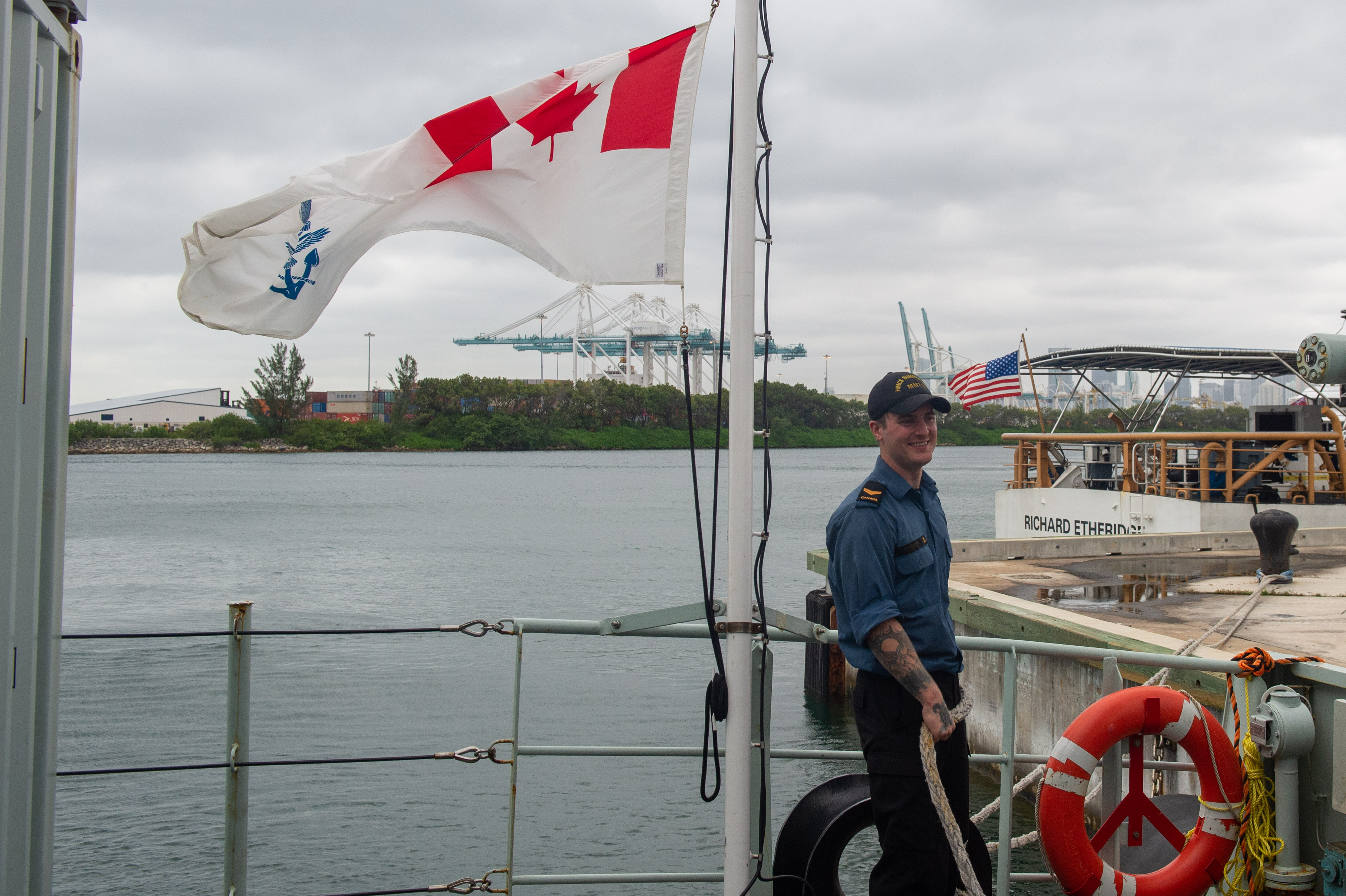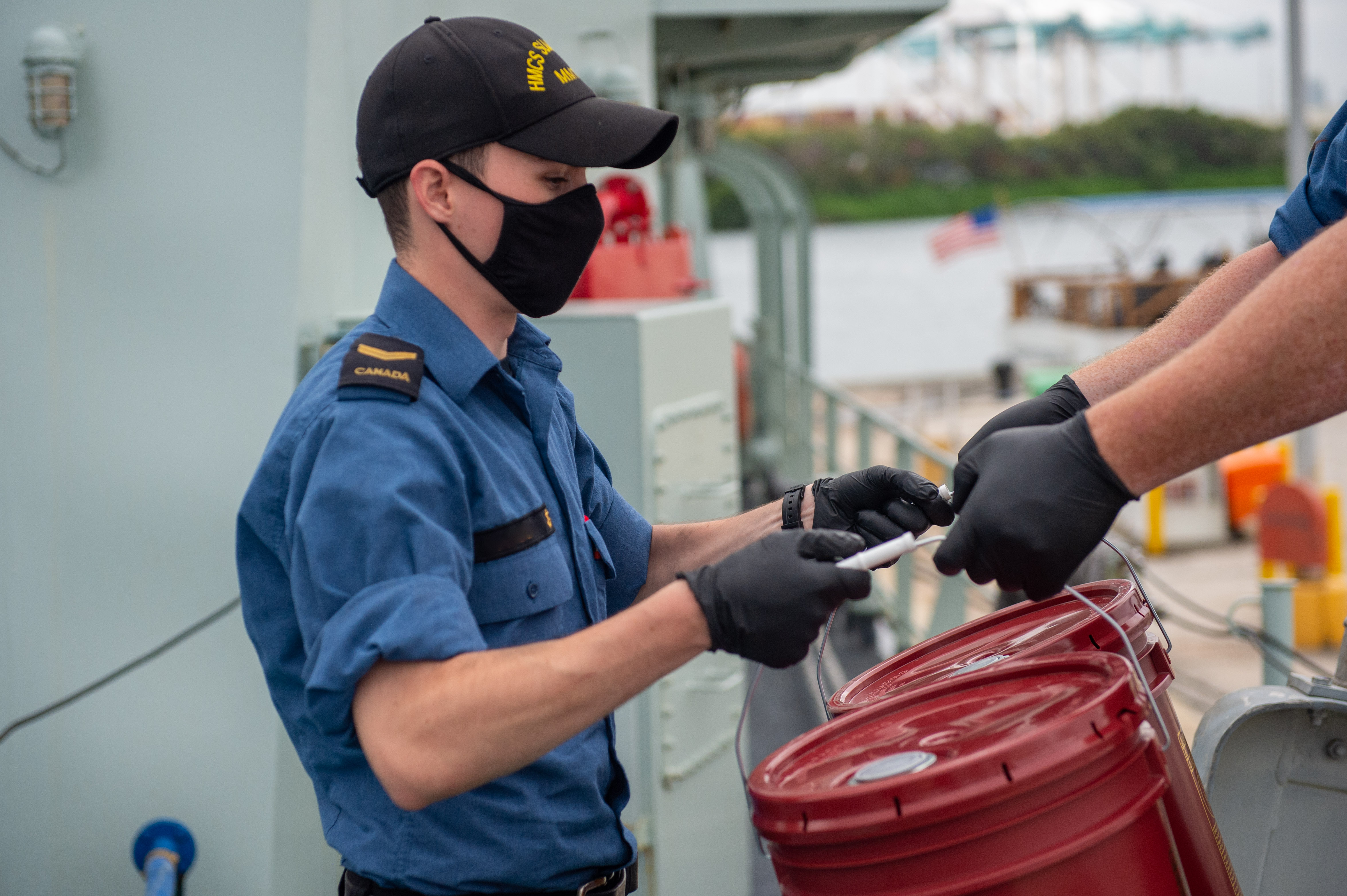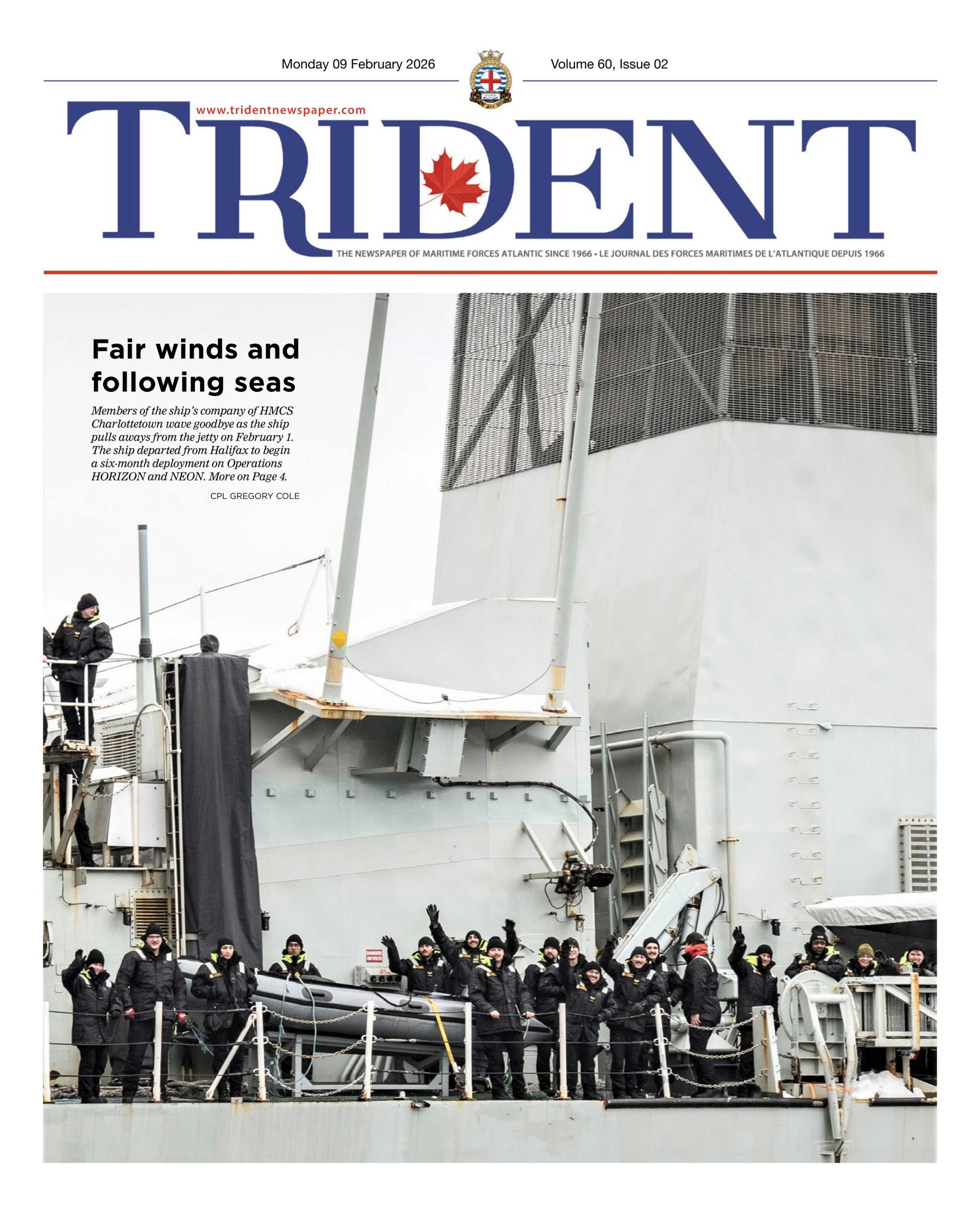
Image has been digitally altered for operations security purposes.
LT SHEILA THAM, PAO
Op CARIBBE during COVID-19
By Lt Sheila Tham,
Op CARIBBE PAO
I am a Public Affairs Officer and have spent my five-year career split between the Air Force and the Army. I was asked to deploy with the Royal Canadian Navy on Op CARIBBE and decided it would round out my experience. I had heard the slogan “join the Navy, see the world” and, given the global pandemic, have spent most of 2020 at home with the urge to travel. It sounded like the perfect opportunity to learn about the Navy and head to the tropics. This is my first impression of sailing and the reality of operational travel during COVID-19.

HMCS Summerside departed Halifax on October 26, 2020 headed for the Caribbean Sea as part of Op CARIBBE. Canada often conducts multiple iterations of Op CARIBBE in a year – the last deployment was with HMC Ships Nanaimo and Whitehorse earlier this year. On March 18, 2020, Maritime Component Command ordered that HMC Ships Nanaimo and Whitehorse cease activities under Op CARIBBE and return to Canada earlier than planned due to the worldwide spread of COVID-19. The deployment of Summerside is the first Op CARIBBE deployment since, and came with myriad new considerations and precautions to ensure the safety of personnel.
The members of Summerside were required to adhere to self-isolation measures prior to sailing along with undergoing a COVID-19 test prior to departure. The same conditions were given to the United States Coast Guard (USCG) Law Enforcement Detachment (LEDET) participants who were picked up in Miami, Florida. Due to these precautions, members were not required to wear masks while at sea or adhere to physical distancing. Normally, sailors would be able to take some time off in port cities to explore. Staying onboard the ship fostered a sense of camaraderie amongst the crew as we were required to socialize with each other instead of going our separate ways in a port city. However, it was evident that many of the crew felt that they were missing out by being so close to civilization and yet so far.
The closest we got to mingling with the locals was during resupply. Only the Physician Assistant, Executive Officer, and Chief Cook were allowed on the jetty to screen the supplies arriving, dressed in non-medical masks and gloves and required to wash their boots and utilize hand sanitizer before returning to the ship. The rest of available personnel mustered on the the the fo’c’sle) at a sanitizing station wearing gloves. Personnel who formed a chain on the brow wore non-medical masks and gloves to pass packages up to the members on the fo’c’sle. Each package was passed with an instruction: “sanitize the box,” “leave on the fo’c’sle,” “wipe down each package,” “discard the box,” repeated as each person passed to the next. Once the ship was resupplied it was considered secure and most of the crew was able to relax – change out of uniforms and open the bar.
Keeping spirits up
Since we weren’t allowed off the ship in Miami for our first port visit of the deployment, and for any future port visits, the Captain hosted a sundowner on the back of the ship, the sweep deck, where the crew watched Miami locals on jet skis and yachts. A few party boats passed with loud music but it wasn’t long before the volume in Summerside drowned out any noise of passing boats. Coincidentally, it was Halloween night and we were hosting our own costume party, cheering on those brave and creative enough to don a costume. There was even modified trick-or-treating as some of the crew came onboard with bags of candy and chocolate to pass out.
After two days alongside, the crew was rested, ready to sail to the Caribbean Sea for operations, and integrate with the LEDET that was now onboard. The time alongside was different than usual – so I hear, anyway. Op CARIBBE is my first Navy deployment and Miami was my first port visit. Despite the disappointment of not being able to visit Miami, I didn’t hear a single complaint as we sailed away. In fact, one member of the crew told me that this port visit was better because we were all able to spend time together, get to know each other better, and build some team cohesion. I’ll report back on what they’re thinking after a few more weeks at sea.
Op CARIBBE is Canada’s contribution to U.S. Enhanced Counternarcotics Operations under U.S. Joint Interagency Task Force South (JIATFS). The intent is to conduct international detection, monitoring, and interdiction of illicit trafficking in the Caribbean Sea and off the Pacific coast of Central America. To make this happen, Canadian ships embark a Law Enforcement Detachment from the United States Coast Guard (USCG). The synchronization of capabilities between the Royal Canadian Navy and USCG enables greater success in reducing drug trafficking while strengthening international interoperability.
Canada has been conducting Op CARIBBE since 2006 and the CAF has contributed to the disruption or seizure of approximately 105 metric tonnes of cocaine and more than 6.7 tonnes of marijuana.






